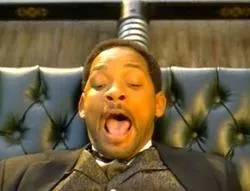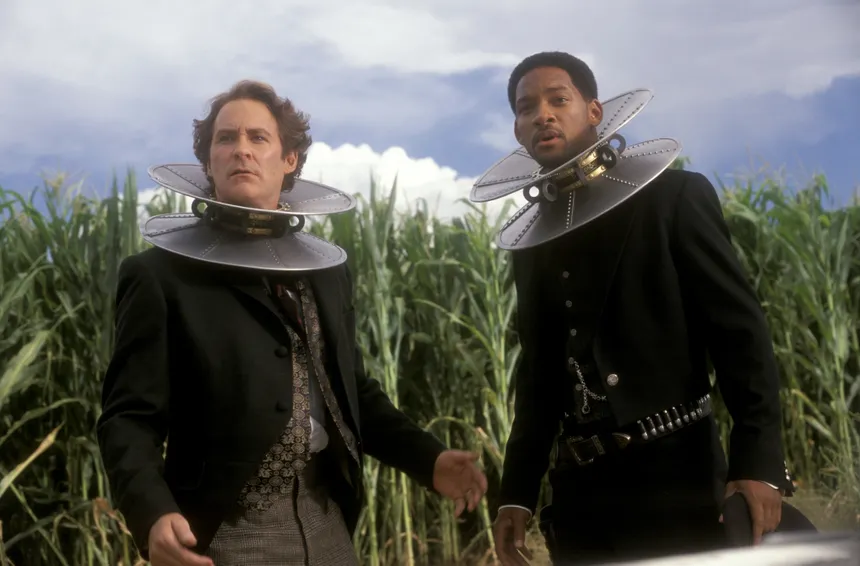Roger Ebert’s reviews of action movies were notoriously intense, and he never hesitated to point out the genre’s shortcomings. For Ebert, the worst action films were those that lacked coherent narratives, memorable characters, and a sense of purpose, leaving audiences feeling confused and uninvested. In his critiques, Ebert often lamented the poor quality of certain films, citing a lack of direction, poorly developed characters, and excessive reliance on special effects. One such film was the 2005 superhero movie “Fantastic Four”, which failed to deliver on its promise. Ebert felt that the film’s poor quality was especially disappointing given the excitement surrounding its premise. He noted that the film’s inability to establish a sense of purpose and coherence made it a disappointing experience.
Another film that Ebert panned was the 1999 steampunk Western “Wild Wild West”. He criticized the film’s poor chemistry between leads Will Smith and Kevin Kline, saying it suffered from an overemphasis on special effects and a lack of common sense. Ebert noted that the film’s inability to balance action and story resulted in a disjointed and unengaging experience. The film’s poor quality was a result of its inability to create a sense of purpose and coherence.
Ebert also had harsh words for the 1970 film “Tori! Tori! Tori!”, describing it as a “timid epic” that failed to deliver on its promise of action and drama. The film’s poor special effects and lack of character development made it a snooze-fest for the critic. Ebert was particularly disappointed by the film’s inability to create any emotional connection between the characters, leaving the audience disengaged and uninvested.

Wild Wild West (Image via Getty)
The 1967 film “Death Rides a Horse” was another film that Ebert found to be a disappointment. The film’s predictable story and forgettable characters made it a forgettable experience for the critic. Ebert concluded that the film’s poor quality was due to its lack of originality and inability to create a sense of purpose. The 1992 comedy-action film “Stop! Or My Mom Will Shoot” was another disappointment for Ebert. The film’s poor writing, lack of chemistry between leads Sylvester Stallone and Estelle Getty, and cheesy one-liners made it a cringe-worthy experience. Ebert concluded that the film’s failure was due to its reliance on tired stereotypes and slapstick humor.
Guy Ritchie’s film “Revolver” was another film that Ebert found to be disappointing. He called it a “thrill-less thriller” that was hellbent on disassembling and reassembling itself. The film’s complex plot, lack of coherence, and poor character development made it a confusing and frustrating experience for the critic. Ebert noted that the film’s failure was due to its inability to balance action and story, resulting in a disjointed and unengaging experience.
The dystopian action film “Death Race” (2008) was another reason why Ebert was left unimpressed. The film’s poor special effects, lack of suspense, and poor characters made it a forgettable experience for the critic. Ebert concluded that the film’s failure was due to its reliance on cheap thrills and lack of substance.
The 1981 road race movie “The Cannonball Run” was another film that Ebert found to be a “rip-off” of better films. The film’s lack of substance, poor characters, and overemphasis on car chases made it a waste of time for the critic. Ebert noted that the film’s failure was due to its inability to create any emotional connection between the characters, leaving the audience disengaged and uninvested.
The action-comedy “Speed Zone” (1989) was another film that Ebert found to be a “rip-off” of better films. The film’s non-stop car chases and crashes made it a chore to watch for the critic. Ebert concluded that the film’s failure was due to its reliance on tired cliches and lack of originality.
Finally, the 1980 vigilante film “The Exterminator” was a “sick example” of revenge fantasy that Ebert found to be a terrible experience. The film’s poor motives, sadistic violence, and lack of coherence made it a disturbing and unengaging experience for the critic.
























